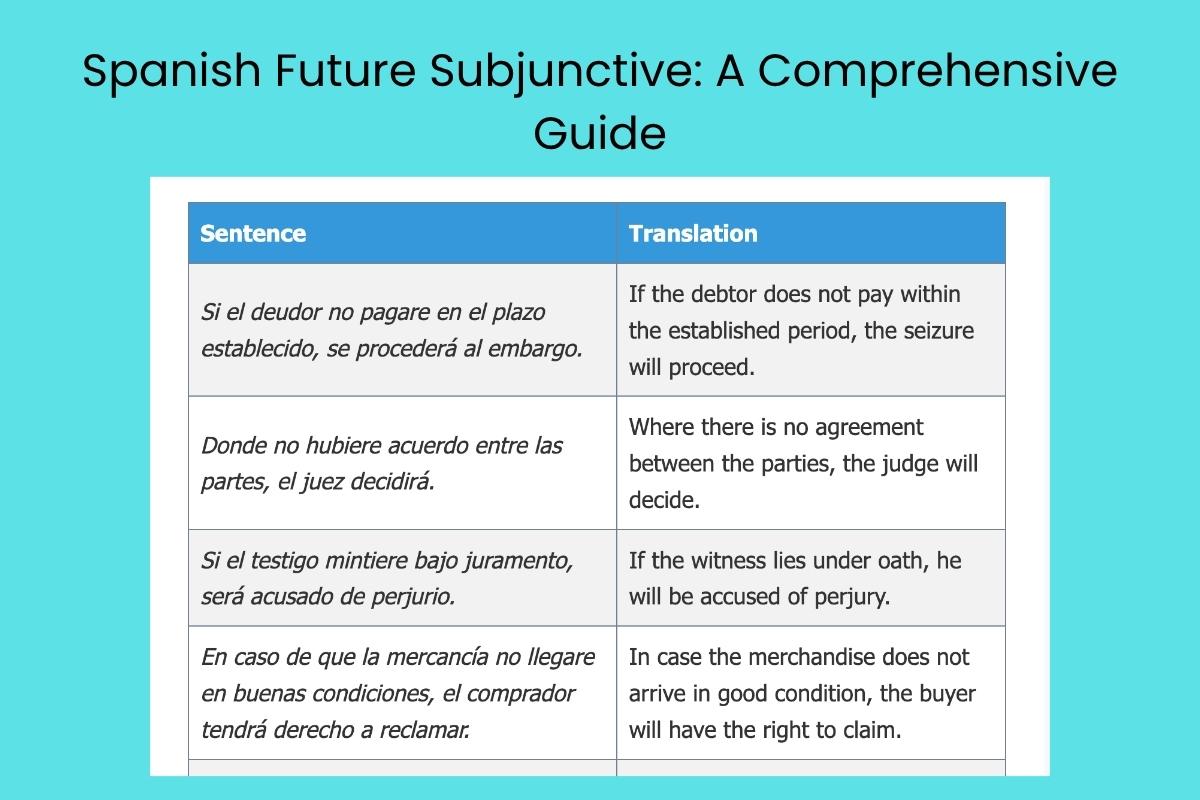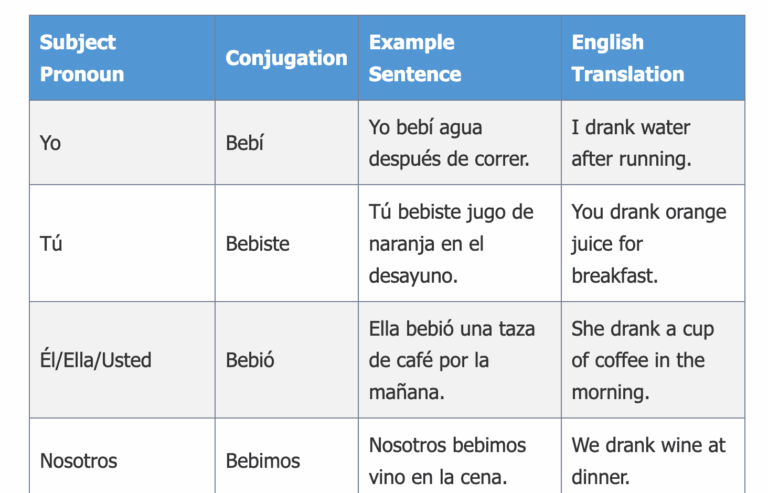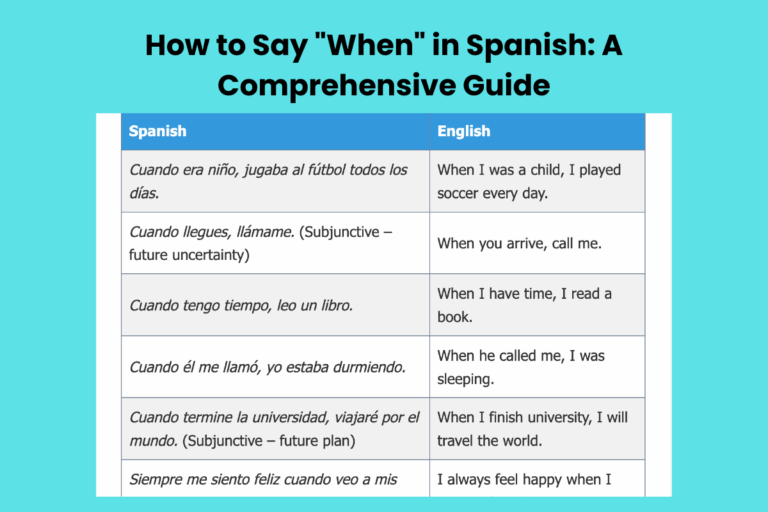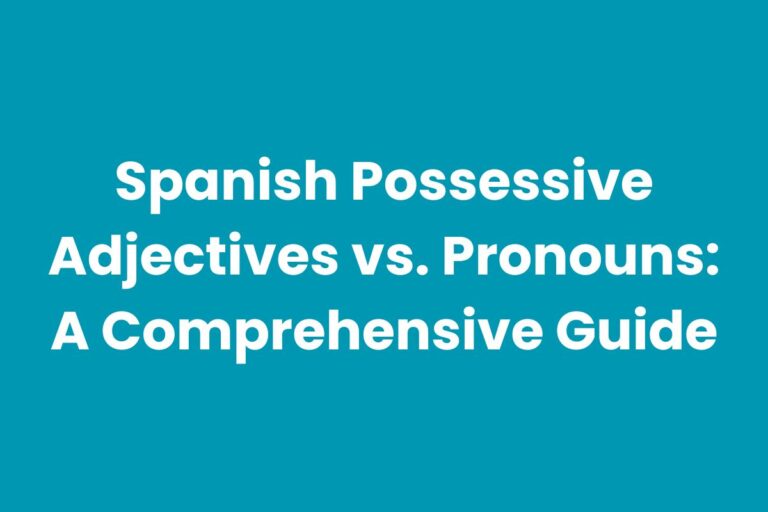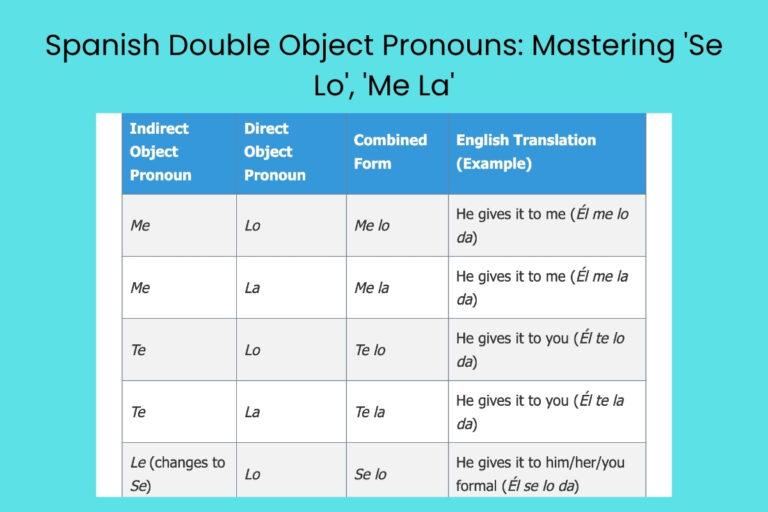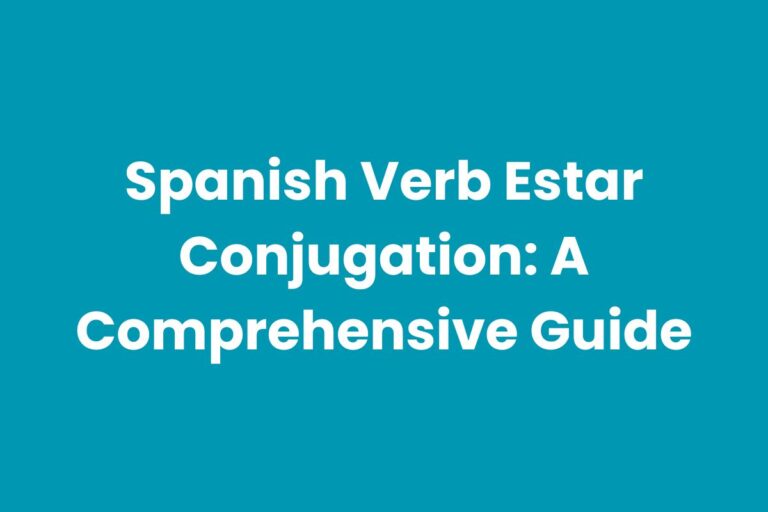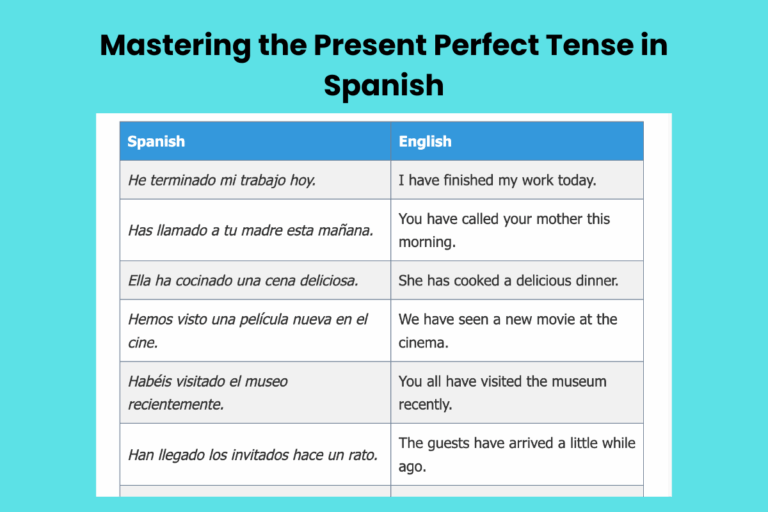Spanish Future Subjunctive: A Comprehensive Guide
The Spanish future subjunctive, though rarely used in modern spoken Spanish, remains an important aspect of the language, particularly in legal and literary contexts. Understanding this tense allows learners to fully comprehend older texts and certain formal constructions.
While its active use has diminished, recognizing its structure and function provides valuable insight into the nuances of Spanish grammar and the subjunctive mood itself. This guide is designed to equip learners with a thorough understanding of the future subjunctive, its formation, usage, and historical significance.
This knowledge is crucial for advanced learners and those interested in classical literature, legal documents, and formal writing. By mastering the future subjunctive, you gain a deeper appreciation for the richness and evolution of the Spanish language.
Table of Contents
- Definition of the Spanish Future Subjunctive
- Structural Breakdown
- Usage Rules
- Examples
- Common Mistakes
- Practice Exercises
- Advanced Topics
- FAQ
- Conclusion
Definition of the Spanish Future Subjunctive
The Spanish future subjunctive (futuro de subjuntivo) is a verb tense in the Spanish language that expresses a hypothetical or uncertain action that will occur in the future. It is part of the subjunctive mood, which is used to express doubt, possibility, desire, or emotion. Unlike the future indicative, which expresses certainty about future events, the future subjunctive deals with events that are contingent or dependent on certain conditions. While its use has significantly declined in modern Spanish, it remains present in legal documents, formal writing, and classical literature. Recognizing and understanding the future subjunctive is essential for interpreting these texts accurately, even if it’s not actively used in everyday conversation.
The future subjunctive is primarily found in subordinate clauses, typically introduced by conjunctions such as si (if), cuando (when), donde (where), como (how), and mientras (while). It often appears in formal contexts, such as legal agreements, historical texts, and literary works from earlier periods. Its function is to express a condition or possibility in the future that affects the outcome of the main clause. While speakers often substitute the present subjunctive or the present indicative in modern speech, the future subjunctive maintains its presence in written language, particularly in specialized fields like law.
Structural Breakdown
Formation of the Future Subjunctive
The future subjunctive is formed from the third-person plural of the preterite (past) indicative. Remove the “-ron” ending and add the following endings:
- -are
- -ares
- -are
- -áremos
- -areis
- -aren
For example, to conjugate the verb hablar (to speak):
- Find the third-person plural of the preterite: hablaron
- Remove the “-ron”: habla-
- Add the appropriate endings:
- hablare
- hablares
- hablare
- habláremos
- hablareis
- hablaren
Therefore, the future subjunctive conjugation of hablar is: hablare, hablares, hablare, habláremos, hablareis, hablaren.
The following table illustrates the conjugation of regular verbs in the future subjunctive:
| Verb | Yo | Tú | Él/Ella/Usted | Nosotros | Vosotros | Ellos/Ellas/Ustedes |
|---|---|---|---|---|---|---|
| Hablar (to speak) | hablare | hablares | hablare | habláremos | hablareis | hablaren |
| Comer (to eat) | comiere | comieres | comiere | comiéremos | comiereis | comieren |
| Vivir (to live) | viviere | vivieres | viviere | viviéremos | viviereis | vivieren |
Irregular Verbs in the Future Subjunctive
Many verbs are irregular in the preterite tense, and these irregularities carry over into the future subjunctive. To form the future subjunctive of irregular verbs, you must first know the irregular preterite form. Some common irregular verbs include ser (to be), estar (to be), tener (to have), ir (to go), and decir (to say).
For example, the preterite of tener (to have) in the third-person plural is tuvieron. Removing the “-ron” leaves tuvie-. Adding the future subjunctive endings gives us: tuviere, tuvieres, tuviere, tuviéremos, tuviereis, tuvieren.
Here’s a table showcasing the future subjunctive conjugation of some common irregular verbs:
| Verb | Yo | Tú | Él/Ella/Usted | Nosotros | Vosotros | Ellos/Ellas/Ustedes |
|---|---|---|---|---|---|---|
| Ser (to be) | fuere | fueres | fuere | fuéremos | fuereis | fueren |
| Estar (to be) | estuviere | estuvieres | estuviere | estuviéremos | estuviereis | estuvieren |
| Tener (to have) | tuviere | tuvieres | tuviere | tuviéremos | tuviereis | tuvieren |
| Ir (to go) | fuere | fueres | fuere | fuéremos | fuereis | fueren |
| Decir (to say) | dijere | dijeres | dijere | dijéremos | dijereis | dijeren |
Understanding the preterite forms of irregular verbs is critical for correctly conjugating them in the future subjunctive. Practice with different irregular verbs to become comfortable with this process.
Usage Rules
While the future subjunctive is rare in modern spoken Spanish, it’s important to understand its traditional uses, particularly in formal, legal, and literary contexts. Here are the primary situations where you might encounter this tense:
Formal and Legal Contexts
The future subjunctive is most commonly found in legal documents and formal writing. It is used to express conditions or stipulations that must be met in the future.
This usage provides a sense of formality and precision, making it suitable for contracts, laws, and official declarations. Even though modern legal writing might favor other tenses, familiarity with the future subjunctive is crucial for interpreting older documents.
For instance, a phrase like “Si el acusado no compareciere…” (If the accused does not appear…) uses the future subjunctive to establish a conditional clause within a legal statement. This construction emphasizes the hypothetical nature of the accused’s non-appearance and its potential consequences.
Literary Contexts
Classical Spanish literature often employs the future subjunctive to add a sense of archaism or to reflect the language of a particular historical period. Authors might use it to evoke a specific tone or to create a sense of distance between the narrator and the events being described.
Reading works from the Golden Age or earlier periods will frequently expose you to the future subjunctive.
In older literary texts, you might find sentences like “Donde hubiere peligro, allí estará el valiente” (Where there is danger, there the brave one will be). This construction, although sounding somewhat archaic to modern ears, highlights the inherent connection between danger and bravery.
Conditional Clauses (Archaic Usage)
Historically, the future subjunctive was used in conditional clauses introduced by si (if). However, this usage is now largely replaced by the present subjunctive or the imperfect subjunctive, depending on the context and the speaker’s intention. When encountering the future subjunctive in a conditional clause, it typically indicates a formal or archaic style.
An example would be: “Si viniere el rey, le recibiremos con honores” (If the king should come, we will receive him with honors). While grammatically correct, this sentence would likely be expressed today as “Si viene el rey, le recibiremos con honores” (using the present subjunctive) or, even more commonly, “Si el rey viene, le recibiremos con honores” (using the present indicative).
Temporal Clauses (Archaic Usage)
Similarly, the future subjunctive was once used in temporal clauses introduced by conjunctions like cuando (when), hasta que (until), and mientras (while). This usage, like the conditional clause usage, is now rare and is typically replaced by the present subjunctive or other tenses. The future subjunctive in temporal clauses emphasized the uncertainty or hypothetical nature of the future event.
Consider the sentence: “Cuando él muriere, sus bienes serán distribuidos” (When he dies, his possessions will be distributed). This would more commonly be expressed as “Cuando él muera, sus bienes serán distribuidos” (using the present subjunctive) or “Cuando él muere, sus bienes serán distribuidos” (using the present indicative). The future subjunctive version creates a more formal and somewhat distant tone.
Examples
To solidify your understanding, let’s examine specific examples of the future subjunctive in various contexts. These examples will illustrate its use in formal documents, literature, and its historical presence in conditional and temporal clauses.
Formal and Legal Examples
The following table provides examples of the future subjunctive in formal and legal contexts. These sentences demonstrate how the future subjunctive is used to express conditions and stipulations in a precise and formal manner.
They are typical of legal documents and official statements that require a high degree of accuracy.
| Sentence | Translation |
|---|---|
| Si el deudor no pagare en el plazo establecido, se procederá al embargo. | If the debtor does not pay within the established period, the seizure will proceed. |
| Donde no hubiere acuerdo entre las partes, el juez decidirá. | Where there is no agreement between the parties, the judge will decide. |
| Si el testigo mintiere bajo juramento, será acusado de perjurio. | If the witness lies under oath, he will be accused of perjury. |
| En caso de que la mercancía no llegare en buenas condiciones, el comprador tendrá derecho a reclamar. | In case the merchandise does not arrive in good condition, the buyer will have the right to claim. |
| Si el demandado no compareciere ante el tribunal, se le declarará en rebeldía. | If the defendant does not appear before the court, he will be declared in default. |
| Cuando la ley así lo dispusiere, se aplicarán las sanciones correspondientes. | When the law so provides, the corresponding sanctions will be applied. |
| Si el contrato no se renovare, las condiciones originales permanecerán vigentes hasta su expiración. | If the contract is not renewed, the original conditions will remain in effect until its expiration. |
| Donde se probare la culpabilidad del acusado, se dictará sentencia condenatoria. | Where the guilt of the accused is proven, a conviction will be issued. |
| Si el solicitante no cumpliere con los requisitos, su solicitud será denegada. | If the applicant does not meet the requirements, his application will be denied. |
| En el supuesto de que la empresa se declarare en bancarrota, los acreedores serán notificados. | In the event that the company declares bankruptcy, the creditors will be notified. |
| Si el propietario no pagare los impuestos, la propiedad será subastada. | If the owner does not pay the taxes, the property will be auctioned off. |
| Cuando el tribunal lo considerare necesario, se podrán solicitar pruebas adicionales. | When the court deems it necessary, additional evidence may be requested. |
| Si el empleado violare las normas de la empresa, será sancionado. | If the employee violates the company’s rules, he will be sanctioned. |
| Donde no se encontrare solución amistosa, se recurrirá al arbitraje. | Where no amicable solution is found, arbitration will be used. |
| Si la resolución no fuere apelada, se considerará firme. | If the resolution is not appealed, it will be considered final. |
| En caso de que el demandante no probare sus alegaciones, la demanda será desestimada. | In case the plaintiff does not prove his allegations, the claim will be dismissed. |
| Si el producto no satisficiere al cliente, se le reembolsará el importe pagado. | If the product does not satisfy the customer, the amount paid will be refunded. |
| Cuando el gobierno lo estimare conveniente, se podrán adoptar medidas de emergencia. | When the government deems it appropriate, emergency measures may be adopted. |
| Si el infractor reincidiere, la sanción será más severa. | If the offender re-offends, the sanction will be more severe. |
| Donde se constatare la existencia de fraude, se iniciará una investigación. | Where the existence of fraud is established, an investigation will be initiated. |
| Si la información suministrada fuere falsa, se anulará la solicitud. | If the information provided is false, the application will be canceled. |
| En el supuesto de que el proyecto no se completare en el plazo previsto, se impondrán penalizaciones. | In the event that the project is not completed within the scheduled time, penalties will be imposed. |
| Si el proveedor no entregare la mercancía en la fecha acordada, se rescindirá el contrato. | If the supplier does not deliver the goods on the agreed date, the contract will be terminated. |
| Cuando las circunstancias lo exigieren, se podrán modificar las condiciones del acuerdo. | When circumstances require it, the terms of the agreement may be modified. |
These examples showcase the formal and precise nature of the future subjunctive in legal and formal contexts. The use of this tense conveys a sense of conditionality and potentiality, crucial for establishing clear stipulations and consequences.
Literary Examples
The following table presents literary examples of the future subjunctive. These sentences are drawn from classical Spanish literature and demonstrate the use of the future subjunctive to add a sense of archaism or to reflect the language of a particular historical period.
While less common in modern literature, the future subjunctive was a staple in older texts.
| Sentence | Translation |
|---|---|
| Donde fuere tu tesoro, allí estará tu corazón. | Where your treasure is, there your heart will be. |
| Si el amor no muriere, todo lo demás vivirá. | If love does not die, everything else will live. |
| Cuando el sol se pusiere, recordaremos este día. | When the sun sets, we will remember this day. |
| Doquiera que fueres, lleva contigo la verdad. | Wherever you go, take the truth with you. |
| Si la fortuna sonriere, alcanzaremos la gloria. | If fortune smiles, we will achieve glory. |
| Cuando la noche cubriere la tierra, las estrellas brillarán. | When the night covers the earth, the stars will shine. |
| Si el destino así lo quisiere, nos volveremos a encontrar. | If destiny wills it, we will meet again. |
| Donde la virtud reinare, la paz abundará. | Where virtue reigns, peace will abound. |
| Si la esperanza no faltare, todo será posible. | If hope does not fail, everything will be possible. |
| Cuando el tiempo lo permitiere, viajaremos a tierras lejanas. | When time allows, we will travel to faraway lands. |
| Si la vida lo consintiere, cumpliremos nuestros sueños. | If life allows it, we will fulfill our dreams. |
| Doquiera que el viento soplare, las hojas danzarán. | Wherever the wind blows, the leaves will dance. |
| Si la fe permaneciere, superaremos cualquier obstáculo. | If faith remains, we will overcome any obstacle. |
| Cuando la lluvia cesare, el arco iris aparecerá. | When the rain stops, the rainbow will appear. |
| Si el coraje no desfalleciere, venceremos al enemigo. | If courage does not fail, we will defeat the enemy. |
| Donde el río corriere, la vida florecerá. | Where the river flows, life will flourish. |
| Si la justicia prevaleciere, el mundo será mejor. | If justice prevails, the world will be better. |
| Cuando el amor verdadero llegare, lo reconoceremos. | When true love arrives, we will recognize it. |
| Si la sabiduría nos guiare, tomaremos las decisiones correctas. | If wisdom guides us, we will make the right decisions. |
| Doquiera que la luz brillare, la oscuridad se disipará. | Wherever the light shines, the darkness will dissipate. |
These literary examples demonstrate how the future subjunctive was used to create a sense of timelessness, formality, and poetic expression. While not commonly used in modern writing, understanding its presence in classical literature is essential for a complete appreciation of the Spanish language.
Conditional Clause Examples
The following table presents conditional clause examples of the future subjunctive. These sentences demonstrate how the future subjunctive has been used in conditional clauses (introduced by ‘si’ – if).
Although not common in modern Spanish, these structures are important for understanding older texts.
| Sentence | Translation |
|---|---|
| Si el tiempo lo permitiere, iremos a la playa. | If time permits, we will go to the beach. |
| Si tuviere dinero, compraría un coche nuevo. | If I had money, I would buy a new car. |
| Si viniere mañana, le daré el libro. | If he comes tomorrow, I will give him the book. |
| Si fuere necesario, te ayudaré. | If it is necessary, I will help you. |
| Si el clima acompañare, haremos una excursión. | If the weather cooperates, we will go on an excursion. |
| Si estuviere libre, te visitaré. | If I am free, I will visit you. |
| Si dijere la verdad, le perdonaré. | If he tells the truth, I will forgive him. |
| Si hiciere buen tiempo, saldremos a pasear. | If the weather is good, we will go for a walk. |
| Si pudiere, te llamaré por teléfono. | If I can, I will call you on the phone. |
| Si supiere la respuesta, te la diré. | If I knew the answer, I would tell you. |
| Si viere a Juan, le saludaré de tu parte. | If I see Juan, I will greet him on your behalf. |
| Si quisiere venir, será bienvenido. | If he wants to come, he will be welcome. |
| Si oyere algún ruido, te avisaré. | If I hear any noise, I will warn you. |
| Si leyere ese libro, aprenderás mucho. | If you read that book, you will learn a lot. |
| Si escribiere una carta, te la enviaré. | If I write a letter, I will send it to you. |
| Si abriere la puerta, entraré. | If I open the door, I will enter. |
| Si aprendiere español, viajaré a España. | If I learn Spanish, I will travel to Spain. |
| Si comiere algo, me sentiré mejor. | If I eat something, I will feel better. |
| Si creyere en ti, te apoyaré. | If I believe in you, I will support you. |
| Si decidiere ir, le acompañaré. | If he decides to go, I will accompany him. |
| Si descubriere la verdad, te lo contaré. | If I discover the truth, I will tell you. |
| Si durmiere bien, estaré más descansado. | If I sleep well, I will be more rested. |
Temporal Clause Examples
The following table presents temporal clause examples of the future subjunctive. These sentences demonstrate how the future subjunctive has been used in temporal clauses (introduced by conjunctions such as ‘cuando’ – when).
Although not common in modern Spanish, these structures are important for understanding older texts.
| Sentence | Translation |
|---|---|
| Cuando terminare el trabajo, descansaré. | When I finish the work, I will rest. |
| Hasta que no regresare, no me iré. | Until he returns, I will not leave. |
| Mientras viviere, te amaré. | While I live, I will love you. |
| Cuando llegare la primavera, los árboles florecerán. | When spring arrives, the trees will bloom. |
| Hasta que no lo viere con mis propios ojos, no lo creeré. | Until I see it with my own eyes, I will not believe it. |
| Mientras trabajare aquí, seré puntual. | While I work here, I will be punctual. |
| Cuando acabare la película, nos iremos a casa. | When the movie ends, we will go home. |
| Hasta que no terminare de leer, no podré opinar. | Until I finish reading, I will not be able to give my opinion. |
| Mientras estudiere, no me molesten. | While I am studying, don’t bother me. |
| Cuando amaneciere, saldremos de viaje. | When dawn breaks, we will leave on our trip. |
| Hasta que no lo entendiere, no me rendiré. | Until I understand it, I will not give up. |
| Mientras esperare, leeré un libro. | While I wait, I will read a book. |
| Cuando anunciare la noticia, todos se sorprenderán. | When he announces the news, everyone will be surprised. |
| Hasta que no aprendiere a cocinar, comeré fuera. | Until I learn to cook, I will eat out. |
| Mientras bailare, seré feliz. | While I dance, I will be happy. |
| Cuando cantare, todos escucharán. | When she sings, everyone will listen. |
| Hasta que no comprendiere la situación, no actuaré. | Until I understand the situation, I will not act. |
| Mientras corriere, me mantendré en forma. | While I run, I will stay in shape. |
| Cuando decidere qué hacer, te lo diré. | When I decide what to do, I will tell you. |
| Hasta que no dominare el idioma, no me mudaré. | Until I master the language, I will not move. |
Common Mistakes
One of the most common mistakes is confusing the future subjunctive with the present subjunctive or the future indicative. The future subjunctive expresses hypothetical or uncertain future actions, while the future indicative expresses certainty.
The present subjunctive, in modern Spanish, often replaces the future subjunctive, leading to errors for learners unfamiliar with the nuances.
Another frequent mistake is incorrect conjugation, especially with irregular verbs. The future subjunctive is derived from the third-person plural preterite, so errors in the preterite will carry over to the future subjunctive.
Always double-check the preterite form before conjugating in the future subjunctive.
Here are some examples of common mistakes and their corrections:
| Incorrect | Correct | Explanation |
|---|---|---|
| Si él hablará, le escucharé. | Si él hablare, le escucharé. | Incorrect use of the future indicative; the future subjunctive is needed in this conditional clause. |
| Cuando él viene, estaré feliz. | Cuando él viniere, estaré feliz. (Archaic) / Cuando él venga, estaré feliz. (Modern) | Using the present indicative instead of the future subjunctive (or present subjunctive in modern usage) in a temporal clause. |
| Si yo tenga tiempo, te ayudaré. | Si yo tuviere tiempo, te ayudaré. | Incorrect conjugation of tener in the future subjunctive. |
Practice Exercises
Test your understanding of the future subjunctive with these exercises. Each exercise focuses on a different aspect of the tense, from conjugation to sentence completion and translation.
Exercise 1: Conjugation Practice
Conjugate the following verbs in the future subjunctive for all six persons (yo, tú, él/ella/usted, nosotros, vosotros, ellos/ellas/ustedes).
| Verb | Yo | Tú | Él/Ella/Usted | Nosotros | Vosotros | Ellos/Ellas/Ustedes |
|---|---|---|---|---|---|---|
| Hacer (to do/make) | ||||||
| Poner (to put) | ||||||
| Venir (to come) | ||||||
| Saber (to know) | ||||||
| Querer (to want) |
Answer Key:
| Verb | Yo | Tú | Él/Ella/Usted | Nosotros | Vosotros | Ellos/Ellas/Ustedes |
|---|---|---|---|---|---|---|
| Hacer | hiciere | hicieres | hiciere | hiciéremos | hiciereis | hicieren |
| Poner | pusiere | pusieres | pusiere | pusiéremos | pusiereis | pusieren |
| Venir | viniere | vinieres | viniere | viniéremos | viniereis | vinieren |
| Saber | supiere | supieres | supiere | supiéremos | supiereis | supieren |
| Querer | quisiere | quisieres | quisiere | quisiéremos | quisiereis | quisieren |
Exercise 2: Sentence Completion
Complete the following sentences with the correct form of the future subjunctive of the verb in parentheses.
- Si (tener) ________ tiempo, te visitaré
- Cuando (llegar) ________ el invierno, hará frío.
- Donde (haber) ________ justicia, habrá paz.
- Si (ser) ________ posible, me gustaría viajar a España.
- Mientras (vivir) ________, aprenderemos cosas nuevas.
Answer Key:
- Si (tener) tuviere tiempo, te visitaré.
- Cuando (llegar) llegare el invierno, hará frío.
- Donde (haber) hubiere justicia, habrá paz.
- Si (ser) fuere posible, me gustaría viajar a España.
- Mientras (vivir) viviere, aprenderemos cosas nuevas.
Exercise 3: Translation
Translate the following sentences into Spanish, using the future subjunctive where appropriate.
- If I have the opportunity, I will study abroad.
- When you finish your studies, you will find a good job.
- Wherever there is love, there is happiness.
- If it were not for you, I would not be here.
- While there is life, there is hope.
Answer Key:
- Si (yo) tuviere la oportunidad, estudiaré en el extranjero.
- Cuando (tú) acabares tus estudios, encontrarás un buen trabajo.
- Donde (ello) hubiere amor, habrá felicidad.
- Si no (yo) fuere por ti, no estaría aquí.
- Mientras (ello) viviere vida, habrá esperanza.
Advanced Topics
To further enhance your understanding of the future subjunctive, let’s delve into some advanced topics, including its historical context and its relationship with other tenses.
Historical Context
The future subjunctive was more commonly used in earlier stages of the Spanish language, particularly during the medieval and Golden Age periods. Its usage reflected a greater emphasis on formality and precision in both spoken and written communication.
Over time, the preference shifted towards other tenses, such as the present subjunctive and the future indicative, leading to the decline of the future subjunctive in everyday speech.
The evolution of the Spanish language saw a simplification of verb tenses and a move towards more direct and less ambiguous forms of expression. This trend contributed to the gradual disappearance of the future subjunctive from common parlance.
However, its presence in historical texts remains a testament to its importance in the development of the language.
Relationship with Other Tenses
The future subjunctive is closely related to the present subjunctive, as the latter often replaces the former in modern usage. In many cases, sentences that would have traditionally used the future subjunctive are now constructed with the present subjunctive, without significantly altering the meaning.
This substitution has made the present subjunctive more versatile and prevalent in contemporary Spanish.
Additionally, the future subjunctive shares a connection with the future indicative, as both tenses express future events. However, the future subjunctive conveys a sense of uncertainty or conditionality, while the future indicative expresses a higher degree of certainty.
Understanding these subtle differences is crucial for interpreting the intended meaning of a sentence.
FAQ
Here are some frequently asked questions about the Spanish future subjunctive:
When is it appropriate to use the future subjunctive?
The future subjunctive is appropriate in formal, legal, and literary contexts, particularly when expressing conditions or stipulations that must be met in the future. However, in modern spoken Spanish, it is often replaced by the present subjunctive or other tenses.
How can I identify the future subjunctive in a text?
Look for verbs conjugated with the endings -are, -ares, -are, -áremos, -areis, -aren (for -ar verbs) and -iere, -ieres, -iere, -iéremos, -iereis, -ieren (for -er and -ir verbs). Also, consider the context of the sentence and whether it expresses a hypothetical or uncertain future action.
What is the difference between the future subjunctive and the present subjunctive?
The future subjunctive specifically refers to future events that are uncertain or conditional, while the present subjunctive expresses more general doubts, desires, or emotions. In modern usage, the present subjunctive often replaces the future subjunctive.
Are there any regional variations in the use of the future subjunctive?
The decline in the use of the future subjunctive is consistent across most Spanish-speaking regions. It is primarily confined to formal and written contexts, regardless of geographical location.
Is it necessary to master the future subjunctive to speak Spanish fluently?
While it is not essential for basic fluency, understanding the future subjunctive is important for advanced learners and those interested in classical literature, legal documents, and formal writing. Recognizing its structure and function provides valuable insight into the nuances of Spanish grammar.
Conclusion
The Spanish future subjunctive, though infrequent in modern spoken Spanish, holds a significant place in the language’s history and formal usage. By understanding its formation, usage rules, and historical context, learners can gain a deeper appreciation for the richness and complexity of Spanish grammar.
While its active use has diminished, recognizing the future subjunctive is essential for interpreting older texts, legal documents, and classical literature. This guide has provided a comprehensive overview of the future subjunctive, equipping you with the knowledge and tools to navigate this unique aspect of the Spanish language.

